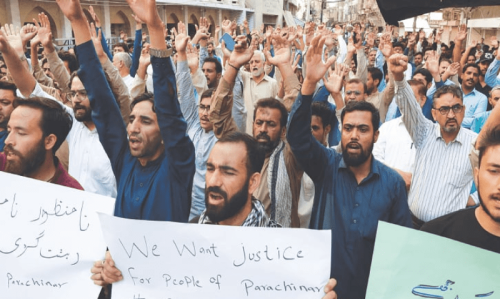PESHAWAR: Three newly-appointed additional judges of the Peshawar High Court took oath of their offices here on Friday.
PHC Chief Justice Qaiser Rashid Khan administered the oath to Justice Kamran Hayat Miankhel, Justice Ijaz Khan and Justice Faheem Wali in a simple ceremony, where high court judges, advocate general Shumail Ahmad Butt, additional attorney general Amir Javed, representatives of the provincial bar council, president and cabinet members of the Peshawar High Court Bar Association and district bar association, and principal officers of the court were in attendance.
The appointments increased the number of high court judges to 17 against the sanctioned strength of 20.
The Judicial Commission of Pakistan had recommended six persons on Jan 5 for appointment to the high court as additional judges. They included the newly-appointed three judges as well.
Appointments take judges’ tally to 17 against strength of 20
However, the parliamentary committee had confirmed the names of the three judges, who hail from the bar, but didn’t endorse the nomination of three others, including district and sessions judges Fazal Subhan, Shahid Khan and Dr Khurshid Iqbal.
The district judges later challenged their non-confirmation by the parliamentary panel.
Justice Ijaz Khan was born in Peshawar in 1972. He had done his graduation from the Peshawar Government College and LLB from Frontier Law College in 1997.
Justice Ijaz received the licence to practise law in the high court in 2002 and in the Supreme Court in 2012. He was elected as a member of the KP Bar Council and remained associated with the law firm of former Supreme Court Bar Association president Abdul Lateef Afridi.
At the time of his appointment to the high court, he was the counsel in around 500 cases pending with that court and 260 with the Supreme Court. He actively participated in the 2007 Lawyers Movement for the restoration of judges.
Justice Faheem Wali, a son of former Supreme Court judge Wali Mohammad Khan, was born in Aug 1973 in Mardan district. He did his graduation from Peshawar’s Edwardes College in 1994 and LLB from the University of Peshawar in 1998.
He got the licence to practise in the high court in 2001 and in the Supreme Court in 2013. He was a member of the Pakistan Bar Council and chairman of its executive committee at the time of his elevation to the bench.
Considered to be a civil law expert, he headed legal committee for bringing important amendments to the Code of Civil Procedure around two years ago.
As for Justice Kamran Hayat Miankhal, he belongs to Dera Ismail Khan and served as an additional advocate general at the time of his elevation to the high court.
He is the brother of noted police officer late Shahid Hayat, who served in Sindh, and a relative of Justice Mazhar Alam Miankhel of the Supreme Court.
Of the current 17 high court judges, only Justice Mohammad Ibrahim Khan was elevated from the district judiciary. The rest are from the bar.
PHC Chief Justice Qaiser Rashid Khan and three of the senior most judges, including Justice Roohul Amin Khan, Justice Lal Jan Khattak and Justice Musarrat Hilali, will reach the age of superannuation in 2023, while Justice Ibrahim Khan and Justice Abdul Shakoor will retire in 2024.
Published in Dawn, February 12th, 2022












































